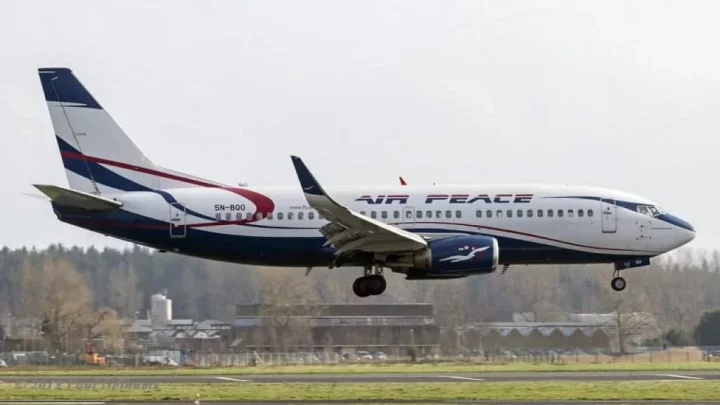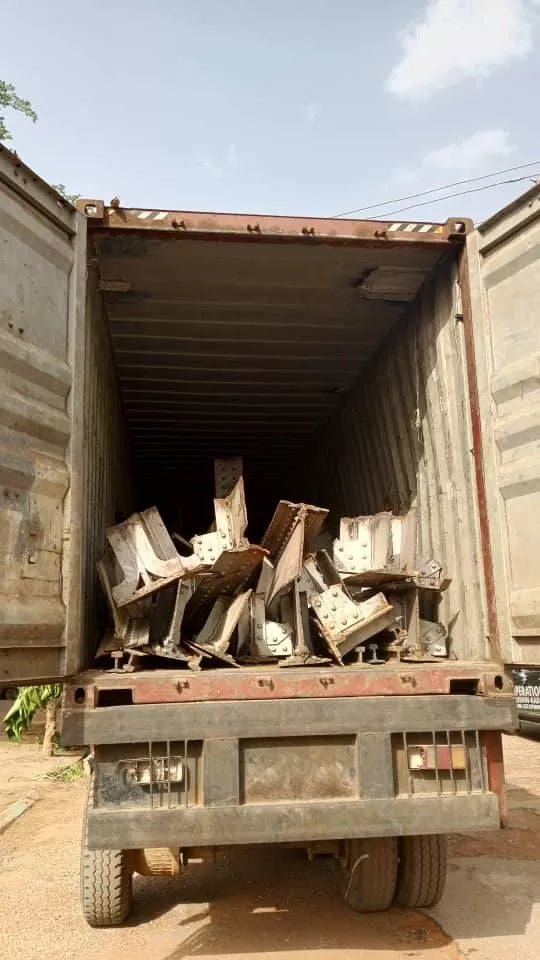
"History does not repeat itself; man does." Barbara Tuchman, Harvard University Historian.
The Minister of Aviation, Festus Keyamo, is adamant that the licence given to a private organisation/individual will not be revoked. In that statement, the Minister betrays ignorance four ways, historical, social, security and economic - as will be shortly explained. But, before moving forward there is a need to make a disclosure, in case some Christians assume that this article was written by a Muslim. No. I am a Christian; and the only living Trustee of Massey Morning Daily Praying Band; Lagos Island, which was co-founded by my mother in 1939.
I devote most of what I have to the mostly old congregation. We pray every morning from 5.30 to 6.30 unfailingly. Others might think that envy drives this intervention. Again, that is not correct. I was born into a big Church; but, I turned my back on it. I came to the world with nothing; and will leave with nothing. Those aspiring to worldly possessions can have them.
So, there is no religious bias involved in this; no personal grudge to settle with the proposed benefactors) of private air strip(s). Instead, there is a private citizen's objection to a measure which is potentially dangerous in all its ramifications. There is a reason for the words benefactors) and strip(s) and perhaps that is the place to start asking questions. However, before the questions, permit me to declare that, as far as I am concerned, the word strip was a clever dodge by the Minister to rename an airport. An air strip is an airport; which renders all the services of all the other airports - without all the social, economic and security safeguards which others are legally expected to provide. Properties, people and structures around it are exposed to the same risks as those around Murtala Mohammed or Nnamdi Azikiwe Airports.
Who pays if a plane demolishes several properties and people?
"The road to hell is paved with good intentions." First, question, naturally is this: is this airstrip the only one the Ministry intends to approve? If, yes, why? If, no, why again? The question is not as frivolous as it might appear because Nigeria has been down this road before with maritime ports - with disastrous results. I was an eyewitness. Limiting the privilege to only one entity would amount to discrimination of the worst kind. If air strips can benefit Nigerians, then the place to start is to have a national policy based on studies undertaken pointing out those areas which would be best served by them and the conditions for establishing them. This has not been done.
It is not encouraging that the Minister has reduced this matter to exercise of power and willfulness. More is required before this initiative should proceed.
Good intentions are never enough. We are all witnesses to how the good intentions of governments, distributing palliatives, during the year, have failed woefully. Today, people are just as hungry as they were on January 1.
There is serious danger ahead if the intention is to approve more air strips for others. In fact, my strongest objection to the entire scheme rests on the fact that others will step forward for permits. Proliferation of air strips will take Nigeria back to the early years of RO-RO jetties in the 1980s.
RORO JETTIES: SMUGGLING OF EVERYTHING; DRUGS
"Those who do not remember the past are condemned to repeat it." George Santayana, 1863-1952
Santayana, one of my favourite historians, must have had Nigerian leaders in mind when he made that declaration. Every administration, obviously without looking into its archives, or consulting those who remember the past, falls into the same trap as its predecessors. That accounts for why little progress is made in Nigeria. The country committed the same blunder in the 1980s with Roll-On-Roll-Off, RORO, jetties, which were approved to ease port congestion at Apapa and Tin Can Island ports; reduce demurrage charges and slash the landing costs of imported goods. That was the intention. As a few old people in business might recollect; that was not what happened. The RORO jetties, being privately owned, though still expected to be subjected to the regulations like other ports, very quickly became ports for smuggling and duty evasion. The government officials posted to them were quickly compromised and they were invariably assigned as agents for the "top brass". It started with one; and soon others were approved. Government's revenue bag developed a huge leak in the bottom.
I was working in the beverage company of a conglomerate based in the South West; which had a RORO terminal and a fishing company as well. Imports for the beverage company would invariably arrive without import documents, escorted by Nigerian Ports Authority and Customs staff. Later, we discovered that the top brass at the ports were shareholders in the RORO company. The fishing company served another purpose in the racket. It would set sail to link with RORO ships bringing drugs. That was when Nigeria was a transit nation for illicit drugs and before the National Drug Law Enforcement Agency, NDLEA, was created by Babangida. One of the greatest fortunes made by a Northerner was built from NPA, RORO, fishing and drug trafficking operations.
RORO staff bringing goods from Lagos to our plant came with mind-boggling stories; not only from their own operations, but other RORO companies as well.
Anybody who thinks what happened at the maritime ports cannot happen at air ports, sorry, strips, must have rocks where brains should be. The Chairman of our conglomerate would bring the "top brass" home a few times, with females of easy virtue in tow, and no attempt was made to hide the sources of their wealth.
It took the Federal Government some time before the leakages and threats of
RORO became apparent and they were closed down. Only God knows how much the nation lost. Now, more than ever, we cannot afford to lose one kobo.
That is the major cause for concern. Nigeria stands to gain very little from this initiative. On the contrary, the nation is risking a great deal by allowing them.
Nor should we be assured by the fact that the first beneficiary is a "man of God".
The fact is laws are not made because of honest and law-abiding men. Societies enact laws because it is an established fact that not all people are decent citizens.
The "man of God" will not fly the planes, load them; operate the take off and landing facilities. All that is required is one Judas, among faithful disciples, and the nation is in deep trouble. Nobody can guarantee that the facility will always be managed as envisaged. Few last questions: since it requires trust to make this sort of departure from existing policy, will the Minister be kind enough to let Nigerians know who is being trusted in this matter. Is it a person or the organisation? If the trust is personal, will the facility be closed after his departure to life everlasting? If the organisation, what entitles it to the trust denied others? It appears to me that another government might close down the strip after Keyamo might have had his way as Minister of Aviation.
















Comments